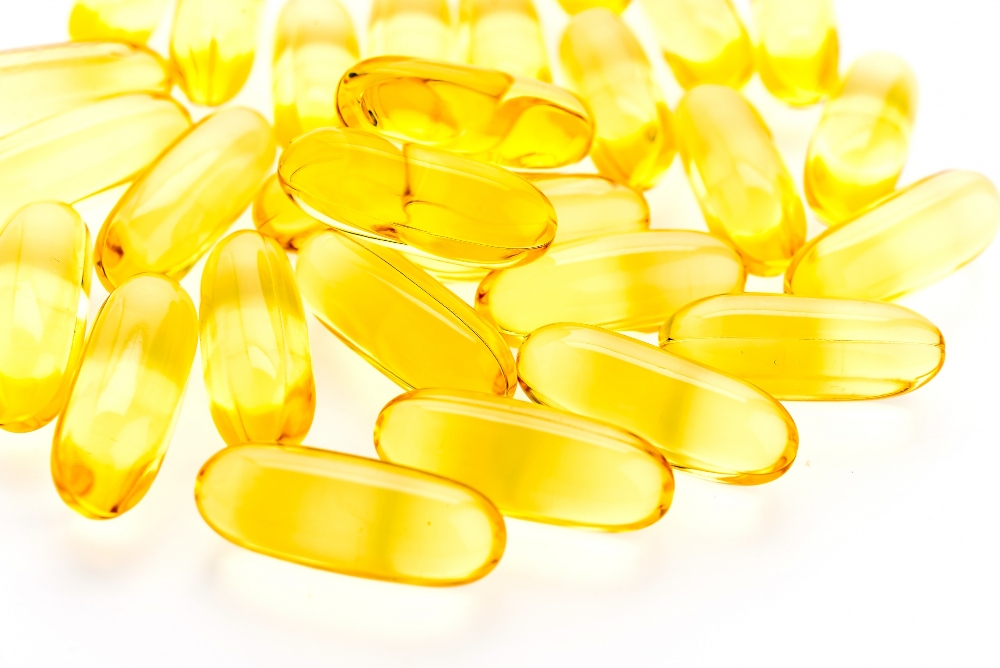The Role of Omega-3 in Pregnancy: Benefits, Sources, and Tips


| Aspect | Details | Tips for Expecting Mothers |
|---|---|---|
| Importance of Omega-3 | Supports fetal brain and eye development, reduces preterm birth risk | Incorporate omega-3-rich foods daily |
| Key Benefits | Enhances cognitive function, reduces inflammation, improves birth outcomes | Choose safe sources like fish and supplements |
| Recommended Intake | 200–300 mg DHA per day for pregnant women | Consult with your doctor before supplementing |
| Best Dietary Sources | Fatty fish, flaxseeds, walnuts, and fortified eggs | Balance plant and marine-based sources |
| Risks of Deficiency | May impact fetal development and maternal mood | Monitor intake and discuss with healthcare providers |
Omega-3 fatty acids are vital nutrients during pregnancy, playing a crucial role in fetal development and maternal health. Known for their anti-inflammatory properties and cognitive benefits, omega-3s, especially DHA (docosahexaenoic acid) and EPA (eicosapentaenoic acid), are essential for a healthy pregnancy. This article explores their benefits, dietary sources, and tips for safe consumption.
Why is Omega-3 Important During Pregnancy?
Omega-3 fatty acids are crucial for:
- Fetal Brain Development: DHA supports the growth of brain cells, improving cognitive function and memory.
- Eye Health: Helps in the development of the retina and visual function.
- Reducing Preterm Birth Risk: Adequate omega-3 intake is linked to longer gestation periods.
- Maternal Health: Reduces inflammation, improves mood, and supports overall well-being.
2. Key Benefits of Omega-3 During Pregnancy
1. Cognitive Development in Babies
DHA is a major structural component of the brain and nervous system, essential for developing memory, problem-solving, and intelligence in babies.
2. Supports Vision
Omega-3s play a pivotal role in the development of the retina, ensuring optimal visual function for the baby.
3. Reduces Risk of Pregnancy Complications
- Lowers the risk of preterm labor.
- May reduce the likelihood of preeclampsia.
4. Maternal Mental Health
Omega-3s can help prevent postpartum depression by regulating mood-related brain chemicals.
Recommended Omega-3 Intake for Pregnant Women
The recommended daily intake for pregnant women is 200–300 mg DHA.
- Safe Limit: Pregnant women can safely consume up to 12 ounces of low-mercury fish per week.
Important Note: Consult your healthcare provider before starting omega-3 supplements, especially if you have dietary restrictions or allergies.
Best Dietary Sources of Omega-3
Marine-Based Sources
- Fatty Fish: Salmon, mackerel, sardines, and trout are rich in DHA and EPA.
- Fish Oil Supplements: Ensure the supplement is purified and certified for low mercury.
Plant-Based Sources
- Flaxseeds and Chia Seeds: Rich in ALA (alpha-linolenic acid), which the body can convert to DHA/EPA.
- Walnuts and Soy Products: Provide moderate amounts of omega-3.
- Fortified Foods: Eggs, milk, and juices often contain added omega-3s.
Pro Tip: Balance marine and plant-based sources for a well-rounded intake.
Risks of Omega-3 Deficiency During Pregnancy
Insufficient omega-3 intake can lead to:
- Suboptimal brain and visual development in the baby.
- Increased risk of preterm labor and low birth weight.
- Mood swings and postpartum depression in mothers.
Advice: Monitor your diet and consider supplements if dietary sources are insufficient.
Safety Tips for Consuming Omega-3
- Limit High-Mercury Fish: Avoid shark, swordfish, king mackerel, and tilefish due to high mercury content.
- Choose Purified Supplements: Ensure fish oil supplements are certified for purity and safety.
- Consult a Doctor: Before making significant dietary changes or adding supplements, discuss with your healthcare provider.
Frequently Asked Questions (FAQs)
1. Can I take omega-3 supplements during pregnancy?
Yes, but consult your doctor to ensure the dosage and supplement type are safe for you.
2. Are plant-based omega-3 sources effective?
Plant-based sources provide ALA, which the body can convert to DHA and EPA, though less efficiently than marine sources.
3. What happens if I consume too much omega-3?
Excessive omega-3 intake may lead to blood thinning or digestive issues. Stick to recommended doses.
4. How do I know if I’m getting enough omega-3?
A balanced diet including fatty fish and fortified foods should meet your needs. Supplements can help if dietary sources are insufficient.
5. Is omega-3 beneficial throughout the entire pregnancy?
Yes, omega-3s are beneficial during all stages of pregnancy and even postpartum.
Contact Us:
At IVFTurkey, we’re here to guide you through every step of your pregnancy journey. Contact us with your questions about nutrition, supplements, or fertility treatments. Let’s ensure a healthy start for you and your baby!



